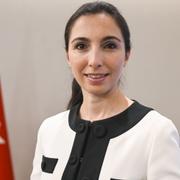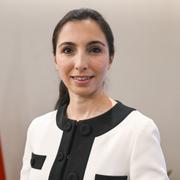
Turkiets skyhöga inflation faller något mer än väntat
Turkiets inflationstakt i december låg på 44,4 procent, vilket var lägre än väntat och mindre än 47,1 procent i november, skriver Bloomberg.
Datan släpps efter att den turkiska centralbanken gjort sin första sänkning av styrräntan på nästan två år, från 50 till 47,5 procent. Även om sänkningen gjordes med en hökaktig ton räknar många ekonomer med att centralbanken även vid kommande möten sänker räntan med 250 punkter.
En stor del av förklaringen till den skyhöga inflationen finns i president Recep Tayyip Erdogans ”ultralätta” penningpolitik, som fördes för att öka tillväxten. Men den förda politiken ledde till en inflationskris och inflationen toppade på 85,5 procent i oktober 2022.
bakgrund
Turkiets ekonomiska kris (2018-)
Wikipedia (en)
The Turkish economic crisis (Turkish: Türkiye ekonomik krizi) is a financial and economic crisis in Turkey. It is characterized by the Turkish lira (TRY) plunging in value, high inflation, rising borrowing costs, and correspondingly rising loan defaults. The crisis was caused by the Turkish economy's excessive current account deficit and large amounts of private foreign-currency denominated debt, in combination with President Recep Tayyip Erdoğan's increasing authoritarianism and his unorthodox ideas about interest rate policy. Some analysts also stress the leveraging effects of the geopolitical frictions with the United States. Following the detention of American pastor Andrew Brunson, who was confined of espionage charges after the failed 2016 Turkish coup d'état attempt, the Trump administration exerted pressure towards Turkey by imposing further sanctions. The economic sanctions therefore doubled the tariffs on Turkey, as imported steel rises up to 50% and on aluminum to 20%. As a result, Turkish steel was priced out of the US market, which previously amounted to 13% of Turkey's total steel exports.
After a period of modest recovery in 2020 and early 2021 amid the COVID-19 pandemic, the Turkish lira plunged following the replacement of Central Bank chief Naci Ağbal with Şahap Kavcıoğlu, who slashed interest rates from 19% to 14%. The lira lost 44% of its value in 2021 alone. In 2023, however, Erdoğan began to follow orthodox banking methods under the guidance of Mehmet Şimşek and Hafize Gaye Erkan. The interest rate has stood at 50% since March 2024 upon the advice of Fatih Karahan, the governor of the central bank who succeeded Erkan. This contributed to the decline of inflation, since as of November 2024, inflation is at 47.09%, down from its all-time high of 83%.
Omni är politiskt obundna och oberoende. Vi strävar efter att ge fler perspektiv på nyheterna. Har du frågor eller synpunkter kring vår rapportering? Kontakta redaktionen


